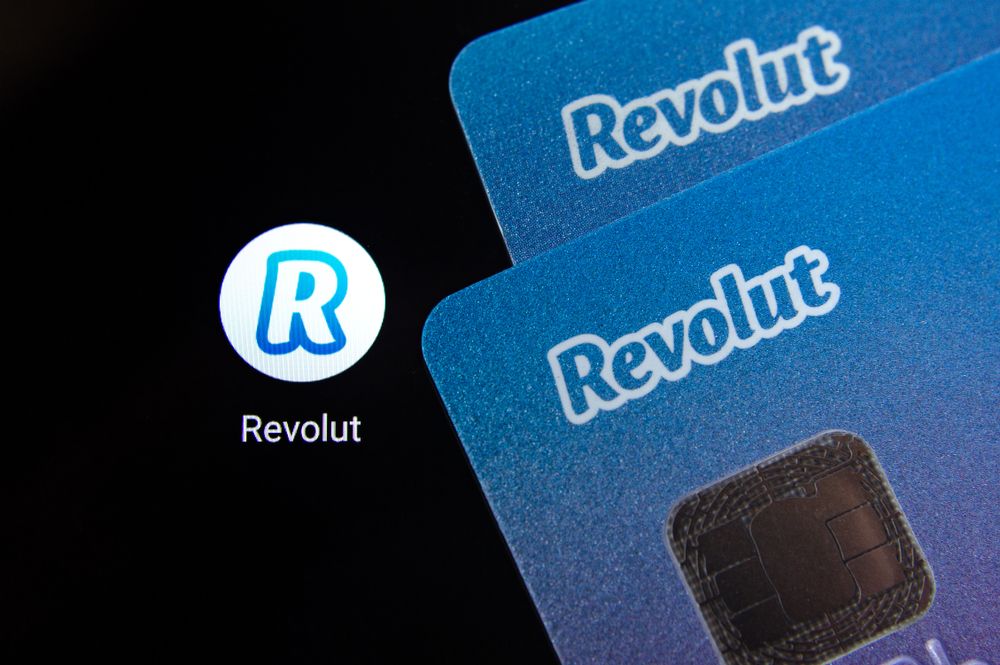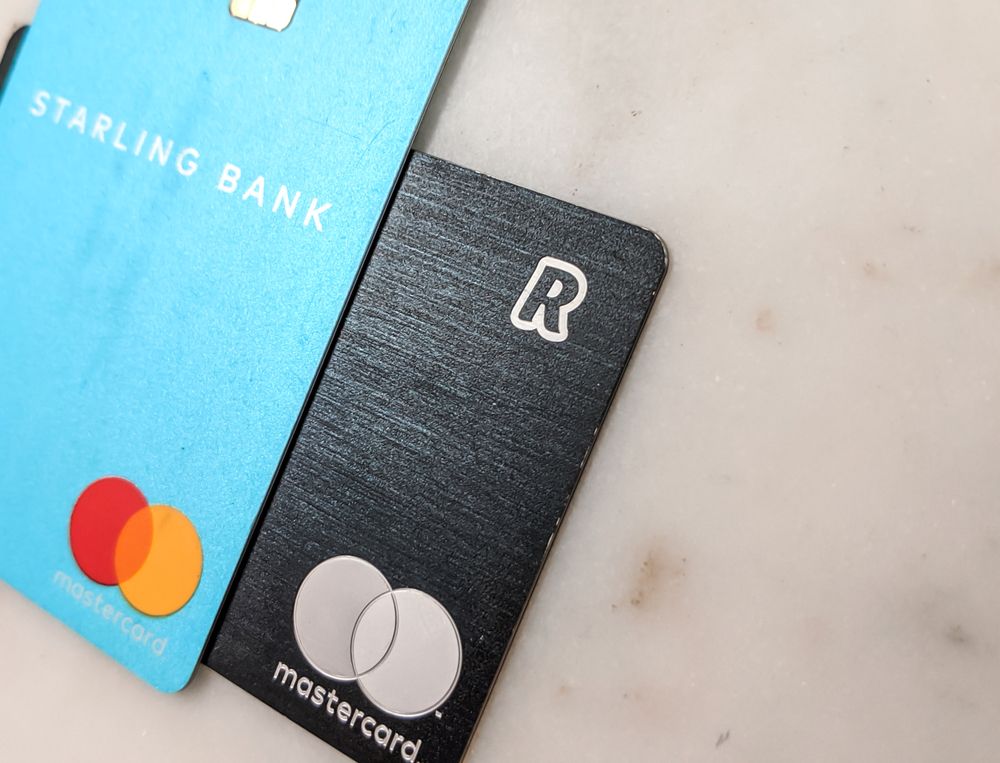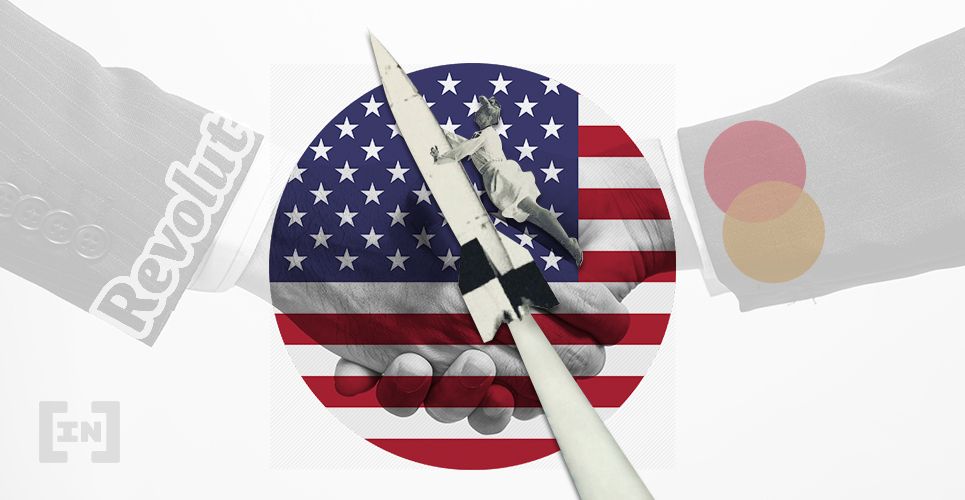The race to make crypto as easy as a swipe of a card in the U.S. could be won by Revolut and Mastercard after the crypto-friendly fintech start-up launched its first debit card.
This foot in the U.S. is significant, especially after Coinbase, with the help of Visa, launched its own crypto debit card in the UK.
Coinbase stated in the launch of their card that it would initially be available in the UK, before being rolled out in Europe. U.S. regulations no doubt have had a role to play in the launch of such a major cryptocurrency card being resigned to Europe.
Revolut’s card is not exclusively cryptocurrency-based, however. In fact, the announcement from Mastercard makes no mention of cryptocurrency except when it describes the startup as having a ‘cryptocurrency exchange.’ This does position Revolut to potentially make crypto-card advancements in the U.S. down the line.

Revolut Hitting New Markets
There is a little irony in the fact that Coinbase has launched its first card in Europe while being US-based, and Revolut has cracked the U.S. market while being situated in London. For both companies, this helps them enter new markets, but it is a rather large boost for Revolut, especially as the startup can look to link its card service to its cryptocurrency exchange. In the release, it is explained that this partnership and launch plays into Revolut’s global ambitions:“Primary to these ambitions is to offer financial services to consumers in the US, and by the end of the year the brands will launch Revolut’s first solutions in the US market. The global expansion will also enable Revolut to reach markets in the Asia Pacific and Latin American regions such as Australia, Singapore, Japan, New Zealand, Brazil, and Mexico.”

A Drive Towards Adoption
The creation of cryptocurrency cards is a clear nod towards making the digital assets as easy to use as cash, through a debit card. With the Coinbase card, users access their cryptoassets through swiping and withdrawing from their card directly and instantly with Coinbase, converting crypto to fiat currency. In the case of Revolut, the same ease of spending cryptocurrencies is not there, but it will most likely provide a workaround for U.S. customers using this debit card. With the Revolut app being available to U.S. customers, and the card now attached, users will be able to buy or receive cryptocurrency. They can then sell it for e-money on their app, which can then, presumably, be spent through the new card. This may take an extra step but does allow for a new drive towards the adoption of cryptocurrencies as a spending tool. Having a cryptocurrency exchange linked to an e-wallet, and now with an attached debit card, means that Revolut could begin cornering the crypto debit card market in the U.S. first. Is this card from Revolut a big statement in the drive to spend cryptocurrencies as easily as cash? Do you think U.S. customers will see this as a big draw to get a Revolut account and attached card? Let us know your thoughts in the comments below!Disclaimer
In adherence to the Trust Project guidelines, BeInCrypto is committed to unbiased, transparent reporting. This news article aims to provide accurate, timely information. However, readers are advised to verify facts independently and consult with a professional before making any decisions based on this content. Please note that our Terms and Conditions, Privacy Policy, and Disclaimers have been updated.

Julian Thomas
Julian has had a long interest in financial technology, especially cryptocurrency and blockchain. He studied to be a journalist and then decided to marry his passion for fintech with his skill in writing to report on this ever-changing and rapidly moving space.
Julian has had a long interest in financial technology, especially cryptocurrency and blockchain. He studied to be a journalist and then decided to marry his passion for fintech with his skill in writing to report on this ever-changing and rapidly moving space.
READ FULL BIO
Sponsored
Sponsored

